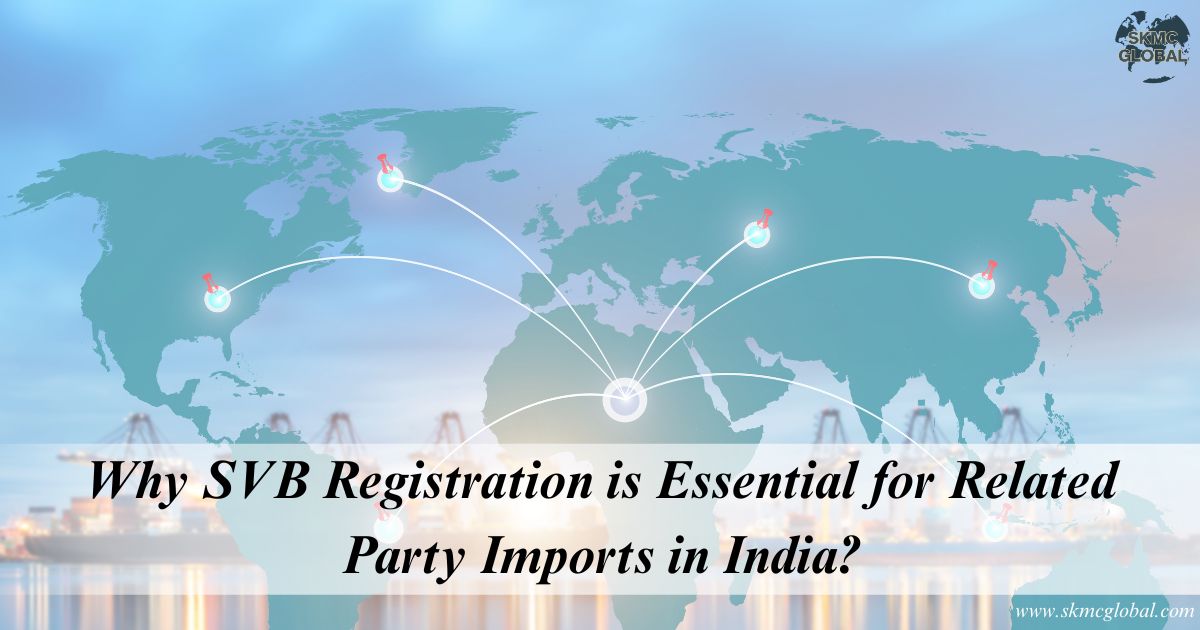
Top 10 FEMA Violations & How to Avoid Them
In the new world economy, foreign investments and cross-border transactions are the order of the day—even for small enterprises such as SMEs and startups. Greater opportunity, however, brings greater responsibility. In India, the Foreign Exchange Management Act (FEMA) regulates all foreign exchange transactions such as foreign direct investment (FDI), overseas direct investment (ODI), external commercial borrowings (ECBs), etc.
Whereas FEMA is intended to support external trade and payment, non-compliance—intentional or otherwise—provides justification for penalties, legal examination, and reputation loss. In this blog, we'll guide you through the Top 10 most prevalent FEMA violations and, more importantly, how you can steer clear of them with wise measures and professional solutions.
- Delays or Failure in Filing FCGPR/FC-TRS
- Where there is a receipt of foreign investment by an Indian company against allotment of equity shares or convertibles, it has to file Form FC-GPR with the RBI within 30 days from allotment of shares. Likewise, resident to non-resident and vice versa transfer have to file Form FC-TRS.
- Delayed filing is one of the most common FEMA defaults and can attract penalty up to three times the amount involved.
- Keep a FEMA compliance calendar.
- Coordinate closely with a FEMA consultant or a compliance expert.
- Timely file on the FIRMS portal.
- Non-Reporting of Overseas Direct Investment (ODI)
- Indian companies investing in foreign subsidiaries or fully-owned joint ventures are required to file Form ODI within the specified period.
- Unreported ODI transactions are read as violations of FEMA and can stifle subsequent foreign investments.
- Have board resolution, valuation certificate, and share certificates ready while making remittance.
- File Form ODI and receive UIN (Unique Identification Number) from RBI.
- Exceeding Sectoral Caps or Route Restrictions
- Every sector of India also has a particular FDI cap and may have government permission as a prerequisite. For example, FDI in defence can be a maximum of 74% under the automatic route and more than that under the government route.
- Exceeding the limit without prior sanction may make the investment non-compliant, and this results in reversal or charges.
- Refer to the recent FDI policy released by DPIIT.
- Seek professional guidance before accepting any foreign investment.
- Misuse of FDI Proceeds
- FDI proceeds should be utilized only for purposes that are consistent with the objects of the company and not for restricted sectors (such as chit funds, agricultural pursuits, real estate business, etc.).
- Usage of FDI funds in unauthorized activities is not according to FEMA and can result in recall of the fund along with imposition of penalties.
- Keep a separate book of account for FDI funds.
- Utilize the money for authorized business purposes only.
- Account for fund use.
- Non-Reception of Share Application Money Within Time Limit
- According to FEMA, the amount received from a foreign investor as share application money is to be converted into equity shares within 60 days. Defaults to refund the amount with 15 days of expiration of the 60-day limit.
- Passage of time without refunding money or allotting shares is a blatant violation of FEMA regulations.
- Mark deadlines from date of receipt. Value and board approve allotment in time.
- External Commercial Borrowings (ECB) Without Approval
- Firms usually raise ECB from overseas lenders, but ECB regulations differ based on industry, maturity, and end-use restrictions.
- Grant of ECB without RBI approval or for restricted end-use (such as property, working capital, etc.) can trigger enforcement action.
- Verify ECB guidelines for eligible borrowers and lenders. Submit ECB Form and monthly return (ECB-2) in time.
- Non-Repatriation of Export Proceeds
- Export proceeds must be realized and repatriated to India within 9 months from export date (goods and services).
- Delay in vesting of export proceeds can lead to penal interest, as well as bank blacklisting.
- Track receivables through ERP/accounting software. Follow up with foreign buyers and seek extension where required.
- Misappropriation of Technical Fees or Royalty
- Any foreign remittance against royalty, license, or technical services shall be backed by a valid agreement and could involve RBI or Ministry approvals, subject to limits.
- Unauthorised or unwarranted remittance could generate suspicions and even reversal.
- Evince proper inter-company agreements.
- Route all remittances via Authorised Dealer (AD) banks.
- File for CA certification (Form 15CB) and file 15CA with Income Tax portal.
- Foreign Bank Account Openings Without Approval
- Indian residents and entities cannot open or have a foreign bank account without RBI approval, except in a few exempted cases (e.g., foreign branches, students, or for export purposes).
- Foreign accounts without sanction can be lodged as black money under FEMA and PMLA laws.
- Learn the precise words when foreign bank accounts are allowed. Always obtain RBI or AD Bank sanction prior to proceeding.
- Non-Filing or Delayed Filing of Foreign Liabilities and Assets (FLA Return) Annual Returns
- All Indian firms that are receiving FDI or making ODI are required to file the FLA Return once a year with RBI by July 15th of every year.
- Non-filing can bar further remittances, FDI inflows, or ODI approvals.
- Prepare your balance sheet figures and foreign liabilities data by June.
- Submit the FLA Return on RBI’s FLAIR portal before the deadline.
- Have proper documentation for all foreign transactions.
- Monitor FEMA updates and RBI circulars regularly.
- Use compliance software or Google Calendar to track due dates.
- Conduct annual FEMA audits, especially if you’re receiving or sending money overseas frequently.
What's the Problem?
Why It's a Problem?
How to Evade It?
What's the Problem?
Why It's an Issue?
How to Avoid It?
What's the Problem?
Why It's a Problem?
How to avoid it?
What's the Issue?
Why It's an Issue?
Avoidance:
What's the Problem?
Why It's a Problem?
How to Avoid It?
What's the Problem?
Why It's a Problem?
How to Avoid It?
What's the Issue?
Why It's a Problem?
How to Avoid It?
What's the Problem?
Why It's a Problem?
How to Avoid?
What's the Issue?
Why It's an Issue:
How to Avoid It:
What's the Issue?
Why It's a Problem:
How to Avoid It:
Last Thoughts: FEMA Compliance is Not a Choice International finance may appear complex, yet FEMA is not a barrier—it's a means to enable safe and legal international transactions. Unfortunately, infractions are mostly committed not by acts of fraud, but due to ignorance or lack of understanding.
Hence, it is no longer an indulgence to retain the services of an expert FEMA consultant or compliance expert—it's now mandatory.
Extra Tips to Remain FEMA Compliant
Need Help with FEMA Compliance?
With SKMC Global, our expert team of FEMA professionals helps startups, SMEs, and corporations stay in compliance with the law—from FDI reporting to ODI structuring, ECB compliance, and more. Contact us today for a free consultation.
Recent Posts
-
 India's Foreign Trade Agreement and Investment Tre...
May 31,2025
India's Foreign Trade Agreement and Investment Tre...
May 31,2025
-
 Top 10 FEMA Violations & How to Avoid Them...
May 30,2025
Top 10 FEMA Violations & How to Avoid Them...
May 30,2025
-
 Differences Between FCGPR and FCTRS:A Comprehensiv...
May 28,2025
Differences Between FCGPR and FCTRS:A Comprehensiv...
May 28,2025
-
 Understanding FDI Norms- A Guide for Foreign Inves...
May 29,2025
Understanding FDI Norms- A Guide for Foreign Inves...
May 29,2025
-
 What you need to know about india's special econom...
May 27,2025
What you need to know about india's special econom...
May 27,2025
-
 Understanding ODI (Overseas Direct Investment) Und...
May 26,2025
Understanding ODI (Overseas Direct Investment) Und...
May 26,2025
-
 How to Track AEO Registration Application and Chec...
May 22,2025
How to Track AEO Registration Application and Chec...
May 22,2025
-
 Benefits or compliance under Indian Foreign Trade ...
May 20,2025
Benefits or compliance under Indian Foreign Trade ...
May 20,2025
-
 AEO v/s Non-AEO: Key Differences and Why Your Busi...
May 19,2025
AEO v/s Non-AEO: Key Differences and Why Your Busi...
May 19,2025
-
 Why SVB Registration is Essential for Related Part...
May 19,2025
Why SVB Registration is Essential for Related Part...
May 19,2025
-
 How Mutual Recognition Agreements Augment AEO Cert...
May 15,2025
How Mutual Recognition Agreements Augment AEO Cert...
May 15,2025
-
 Customs Streamlining Refund Processes Through Auto...
Mar 17,2025
Customs Streamlining Refund Processes Through Auto...
Mar 17,2025
-
 Ekal Anubandh-Single Unified Multi-Purpose Electro...
Mar 06,2025
Ekal Anubandh-Single Unified Multi-Purpose Electro...
Mar 06,2025
-
 Revised guidelines on SVB assessment and its speed...
Aug 26,2021
Revised guidelines on SVB assessment and its speed...
Aug 26,2021
-
 5 ways about how you can fast track your SVB regis...
Jul 21,2021
5 ways about how you can fast track your SVB regis...
Jul 21,2021
-
 AEO Registration in UAE...
Nov 16,2021
AEO Registration in UAE...
Nov 16,2021
